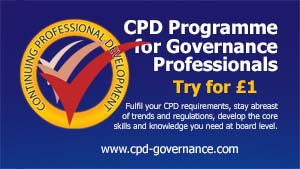Asking Precision Questions
If you want to communicate effectively, you have to be attuned to sloppy language when it pops up and know how to ask questions to gain specificity. This not only enables you to ensure that you really understand what the other person means to say, it also helps the other person to clarify their thinking.
The words we use to describe experiences are not the experiences. They are just the best verbal representation we can come up with. Precise language has the ability to move people in useful directions. Sloppy language can misdirect them.
Precision questions are designed to challenge and influence the constraints that people put on themselves, and the perceptions we form about ourselves in the way we delete, distort and generalise our experience. The questions challenge the way we express these patterns in our language, both internally to ourselves and in conversations with others. The questions aim to reconnect the speaker with their original experience and the truth of their potential.
When questions are asked with rapport, the other party can discover their own thinking patterns while giving the information and often further their own development.
Beware; continued repetition of requests to be more specific can make conversation long and boring. Maintain rapport and be guided by curiosity; ask what you need to know, based on what is relevant, keeping the conversation in context.
The following five question styles will help you communicate with more precision and effectiveness. They are simple verbal tools that you can use to guide you through the verbal fluff of distortion, generalisation and deletion that characterises normal communication.
Unspecified nouns
They, people, things . . Ask “Who/what (noun) specifically?”
Examples:
"I want a new job." "What job, specifically?"
"I saw a film." "Which film, specifically?"
"It's awful." "What, specifically, is awful?"
"I've left it behind." "What, specifically, have you left behind?"
"There's no time." "What, specifically, is there no time for ?"
Unspecified verbs
Ask "How (verb), specifically?"
Examples:
"She hurt me." "How did she hurt you, specifically?"
"She always fails." "How does she fail, specifically?"
"He ripped me off." "How did he rip you off, specifically?"
"That film upset me." "How did that film upset you, specifically?"
"I found out at last." "How did you find out, specifically?"
Rules
Use of words such as should, should not, must, must not, have to, cannot, ought to, ought not to. These words indicate rules which may or may not be legitimate. If accepted they limit our actions.
Ask the question "What would happen if . . . ? What causes/prevents it?"
Examples:
"We must do it now." "What would happen if we didn't?"
"You've got to laugh." "What would happen if you didn't?"
"You shouldn't do that." "What would happen if you did?"
"You must do as he says." "What would happen if you didn't?"
"You can't do that now." "What would happen if I did?"
Generalisations
We generalise when we have one or more experiences and decide that all future experiences with similar characteristics will have the same result. Generalisation is a short cut that enables us to function effectively in the world. But inappropriate generalisation can create unnecessary pain and limitations in behaviour.
Challenge the assumption. “Do you really mean all, every, never? Surely there are some exceptions.
Examples:
“All, every, never . . .”
"All French are arrogant." "All French?"
"It's always the same story." "Always?"
"Nobody loves me." "Nobody?"
"He never gets it right." "Never?"
"They say it will rain." "Who say it will rain?"
Comparators
Use of words such as better, worse, easier, too much etc. without a specific comparison to benchmark the statement against.
Too much, too many, too expensive . . . Ask questions that identify the benchmark, for example: "Compared to what? Better than what?"
Examples:
"That's better." "Better than what?"
“She's the brightest." "Brighter than whom?"
"The greatest show in town." "Greater than what?"
"Things are faster now." "Faster than what?"
"This is far easier." "Far easier than what?"



